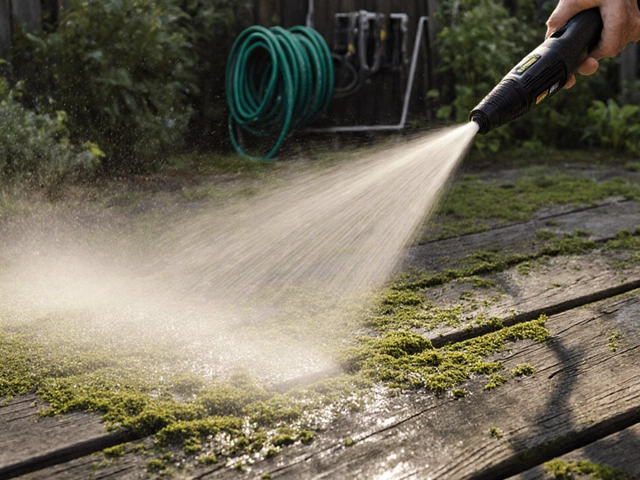Thinking about deep cleaning at the dentist? Probably heard a few wild stories about pain, right? Here’s the real scoop: deep cleaning (or scaling and root planing) isn’t the torture session people sometimes make it out to be. It’s a step above your regular cleaning, sure, but plenty of folks get through it with numb gums and hardly any fuss.
The actual pain level depends a lot on your gums and how sensitive you are. Some people barely feel a thing—others feel more pressure and mild discomfort, especially if there’s a lot of swelling. Dentists usually use numbing gel or even local anesthetic so you don’t feel those scrapes. Still worried? You can always ask for a little extra numbing.
There are ways to make it much easier, starting before you even get to the chair. Good sleep and some light food help your body handle stress—and you can chat with your dentist about what freaks you out most. Believe it or not, being honest about your nerves makes things smoother for everyone.
- What Is Deep Cleaning, Really?
- How Bad Does It Hurt—If At All?
- Why Some People Feel More Pain Than Others
- Dentist Tricks to Keep You Comfortable
- Tips to Make Recovery Way Easier
What Is Deep Cleaning, Really?
So, what’s deep cleaning at the dentist actually about? It’s not just a longer version of your usual cleaning. Deep cleaning—officially called scaling and root planing—is for folks who have gum disease or a lot of tartar built up below the gum line. Regular cleanings focus on the surfaces above your gums. Deep cleaning goes beneath the surface, getting rid of bacteria and hardened plaque (tartar) where your toothbrush can’t reach.
When your gums start pulling away from your teeth and form “pockets,” bacteria sneak in and cause more damage. Deep cleaning helps shrink those pockets, stop gum disease from getting worse, and even prevent tooth loss. The dentist or hygienist uses special tools to scrape away the junk from both above and below the gum line. Sometimes they smooth out rough spots on your roots, so bacteria can’t latch on again as easily.
Here’s what the American Dental Association says about deep cleaning:
"Scaling and root planing is the treatment of choice for most patients with chronic periodontal disease, because it removes the cause of inflammation and gives gums a chance to heal."
To sum it up, deep cleaning isn’t something everyone needs. It’s a next-level treatment when you’ve got more serious gum problems—not just a little extra plaque after missing a few flossing sessions. Your dentist figures out if you need it by checking your gums for bleeding, measuring pockets, and looking for tartar below the gum line.
Key thing to remember: a deep cleaning is all about tackling gum disease head-on, not just making your teeth squeaky clean for show.
How Bad Does It Hurt—If At All?
So, is deep cleaning painful? The truth is, it’s not a one-size-fits-all answer. Most people feel less actual pain than they expect, especially with modern numbing techniques. Dentists almost always use a numbing gel or inject a local anesthetic before they start, so you shouldn’t feel sharp pain while they’re working. At worst, folks describe it as pressure, tickling, or a sort of annoying scraping sensation. If your gums are really inflamed or sensitive, you might get a zinger or two, but not that movie-style agony.
Let’s talk facts: According to a 2023 American Dental Association survey, about 70% of patients said deep cleaning caused, at most, mild discomfort. Only 12% described it as painful—and those were usually people with serious gum infections or skipped the numbing step. Here’s a quick look at patient experiences:
| Patient Group | Description of Sensation | Percent (%) |
|---|---|---|
| No Discomfort | Pressure or nothing at all | 41 |
| Mild Discomfort | Annoying, but manageable | 29 |
| Moderate Pain | Temporary stinging/soreness | 18 |
| Severe Pain | Painful, required extra numbing | 12 |
Things that crank up the discomfort? Swollen gums, deep pockets, anxiety, and skipping meals beforehand. On the flip side, if your dentist uses plenty of anesthetic and you speak up if you’re hurting, you’re way less likely to have a bad time.
After the numbing wears off, some people say their gums feel sore or a little raw, almost like eating popcorn with sharp kernels. This goes away with over-the-counter pain meds and a soft-food diet for a day or so. Rarely, people feel sensitive teeth for a week, especially if a lot of buildup had to be scraped off.
- Don’t be shy about asking for more numbing if you feel anything sharp.
- Good communication with your dentist makes the experience easier.
- Plan for a chill day and grab some ibuprofen just in case.
Bottom line: for most, deep cleaning isn’t something to dread. It’s uncomfortable for a bit, but it shouldn’t be real pain—especially if you trust your dental team and look after yourself afterward.

Why Some People Feel More Pain Than Others
Pain during a deep cleaning can feel like a total mystery. But the truth is, your gums, your overall health, and how much tartar you have all play a part.
Let’s break it down. If your gums are inflamed or you’ve got gum disease, your nerves are already on high alert. The deeper the cleaning, the closer the tools get to those nerves, making things a bit more sensitive. People with healthy gums usually cruise through with less hassle.
Medications matter, too. If you take blood thinners or certain heart meds, your gums might bleed or react more. Health conditions like diabetes can leave you more prone to swelling, soreness, or even numbness that lingers.
Sensitivity is super personal. Some people naturally have thinner gum tissue or more exposed tooth roots, so they’re quicker to feel pain. Bad past experiences at the dentist? They can make your brain expect pain—even when things aren’t that bad.
There’s also the “tartar factor.” If it’s been ages since your last cleaning, there’s probably more buildup going on—and removing it takes more work, more scraping, and sometimes a bit more discomfort.
- Swollen, infected gums feel pain more.
- High stress or anxiety makes nerves extra sensitive.
- Previous bad dental experiences can make pain seem worse.
- Underlying health problems (like diabetes) can increase discomfort.
- More tartar usually means more scraping, so more soreness.
Every mouth is different, so don’t be shy about telling your dentist how you're feeling. The more they know, the better they can adjust things on the fly.
Dentist Tricks to Keep You Comfortable
Let’s get real—nobody wants to squirm around during a deep cleaning. Dentists know this, so they’ve got a whole set of tricks to help you get through it without more pain than necessary.
First up, numbing gel is almost always used before getting started. It’s brushed onto your gums and, honestly, it works fast. For those who need extra, a dentist can do a local anesthetic shot. You might feel a little pinch for a second, but then you’re good—sometimes it’s so effective you barely notice anything during the cleaning itself.
Another common move is to work in small sections, especially if your gums are super sensitive or you have a lot of tartar. Instead of blasting through everything in one go, your dentist might do one half of your mouth per visit. This gives your mouth a break, and honestly, it feels less intense.
Here are some practical comfort tricks you’ll see at most dental offices:
- Noise-canceling headphones or soft music to distract your brain.
- Breaks when you need them—just raise your hand, and they’ll pause.
- A rubber bite block to rest your jaw.
- Using TV screens or ceiling murals as a visual distraction.
They’ll also check in with you throughout the process, asking about your pain level. If you say it hurts, they’ll slow down or apply more numbing. Don’t tough it out—you’re not being difficult by speaking up. The goal is to get through your cleaning with as little stress as possible.

Tips to Make Recovery Way Easier
Deep cleaning is done, and you might be feeling sore, maybe a little tender. That’s normal—don’t freak out if eating feels a bit weird or your gums are pinker than usual for a couple days. Most people bounce back fast, but there are seriously easy ways to speed that up and dodge any real trouble.
- Stick to soft foods for the first 24 hours—think eggs, yogurt, mashed potatoes. Crunchy stuff can poke those healing gums and drag out the soreness.
- Rinse with lukewarm salt water a couple of times a day. This brings down swelling and helps your gums heal up. Just mix half a teaspoon of salt in a cup of warm water—nothing fancy.
- If your dentist gave you a mouthwash or pain meds, actually use them! They’re meant to keep infection away and stop pain from getting out of hand.
- Brush gently with a soft toothbrush. You don’t want old bacteria hanging around, but you also don’t want to irritate your gums more.
- Hydrate like crazy. Water helps flush away stuff that shouldn’t be sticking around your gums.
Dr. Mia Carter, a periodontist in Denver, puts it simply:
“What patients do at home in the first 48 hours plays a huge role in how their mouth feels after deep cleaning. Don’t skip the salt water, and definitely don’t go for that bag of chips the same day!”
What about stats? According to the American Dental Association, about 85% of people report mild soreness after deep cleaning, but only 10% need anything stronger than over-the-counter pain relievers.
| Common Recovery Symptoms | How Long It Lasts (avg.) |
|---|---|
| Gum soreness | 2-3 days |
| Mild bleeding | 24-48 hours |
| Sensitivity to cold | Up to 1 week |
| Swelling | Under 3 days |
If things feel worse instead of better, or you see lots of blood or feel severe pain, don’t wait—call your dentist. But most folks are back to normal before they know it, especially if they follow these common sense moves.




